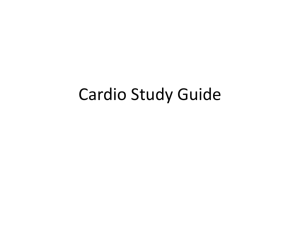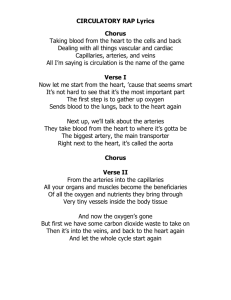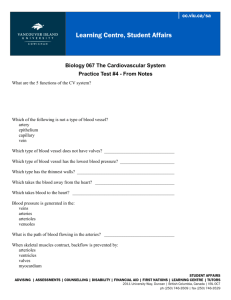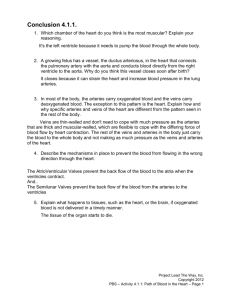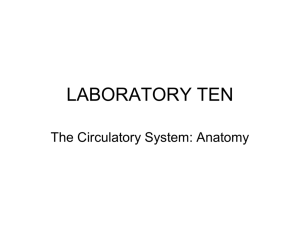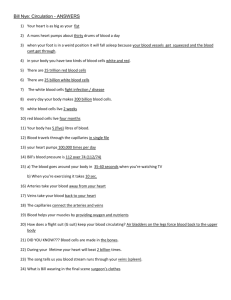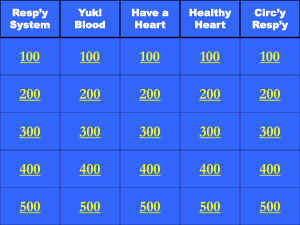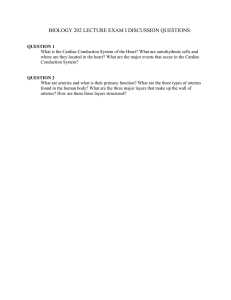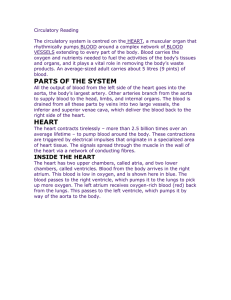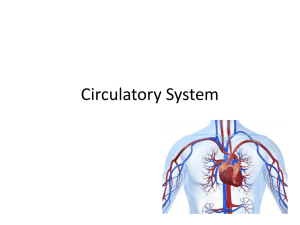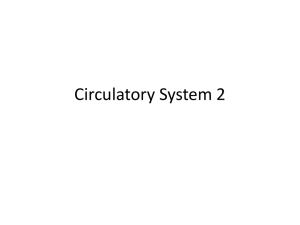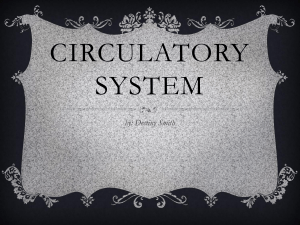Anatomy and Physiology Semester Test Review #2 Chapter 10, 11
advertisement
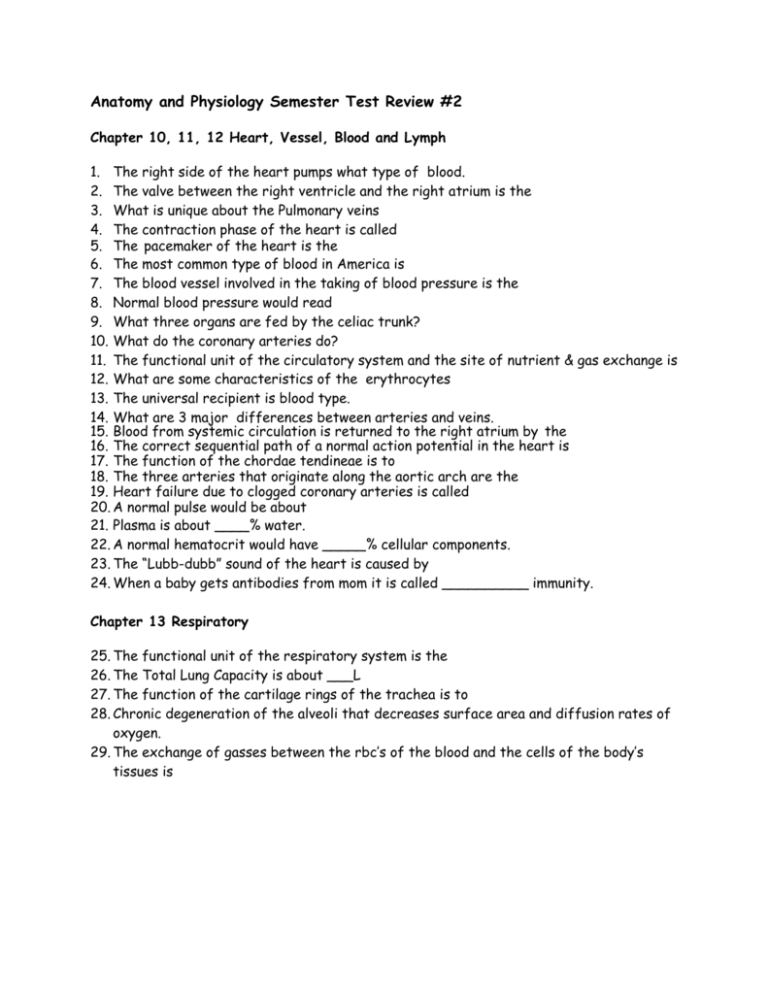
Anatomy and Physiology Semester Test Review #2 Chapter 10, 11, 12 Heart, Vessel, Blood and Lymph 1. The right side of the heart pumps what type of blood. 2. The valve between the right ventricle and the right atrium is the 3. What is unique about the Pulmonary veins 4. The contraction phase of the heart is called 5. The pacemaker of the heart is the 6. The most common type of blood in America is 7. The blood vessel involved in the taking of blood pressure is the 8. Normal blood pressure would read 9. What three organs are fed by the celiac trunk? 10. What do the coronary arteries do? 11. The functional unit of the circulatory system and the site of nutrient & gas exchange is 12. What are some characteristics of the erythrocytes 13. The universal recipient is blood type. 14. What are 3 major differences between arteries and veins. 15. Blood from systemic circulation is returned to the right atrium by the 16. The correct sequential path of a normal action potential in the heart is 17. The function of the chordae tendineae is to 18. The three arteries that originate along the aortic arch are the 19. Heart failure due to clogged coronary arteries is called 20. A normal pulse would be about 21. Plasma is about ____% water. 22. A normal hematocrit would have _____% cellular components. 23. The “Lubb-dubb” sound of the heart is caused by 24. When a baby gets antibodies from mom it is called __________ immunity. Chapter 13 Respiratory 25. The functional unit of the respiratory system is the 26. The Total Lung Capacity is about ___L 27. The function of the cartilage rings of the trachea is to 28. Chronic degeneration of the alveoli that decreases surface area and diffusion rates of oxygen. 29. The exchange of gasses between the rbc’s of the blood and the cells of the body’s tissues is
